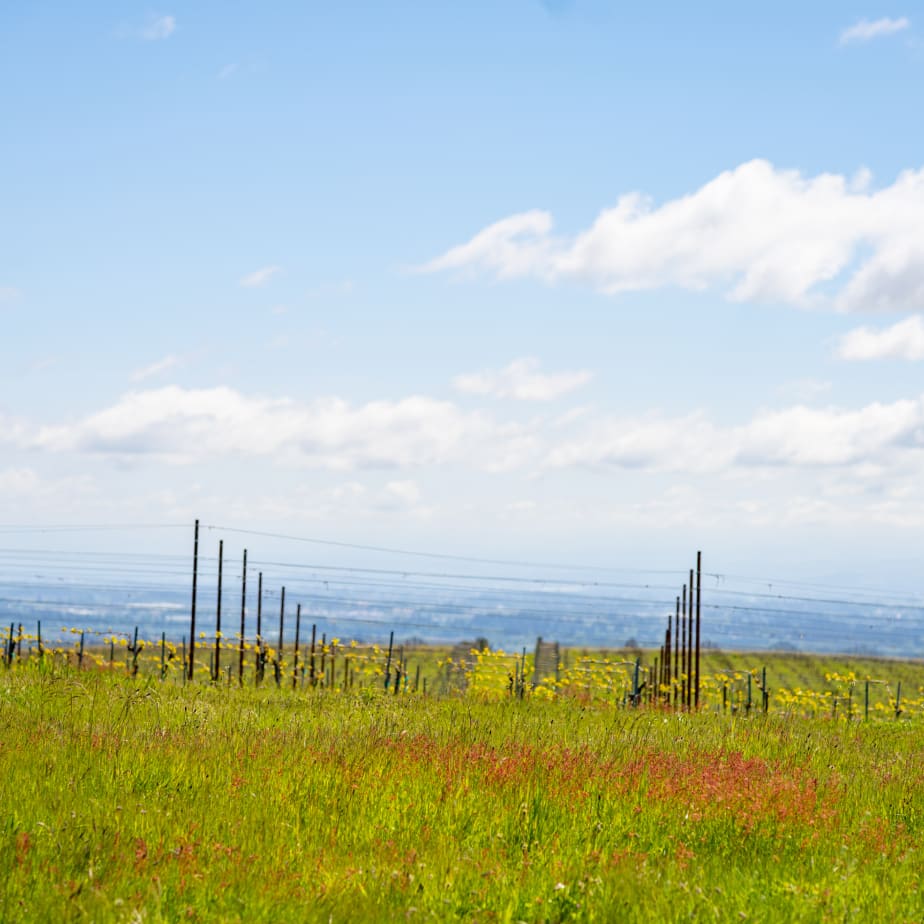Wine
Sustainable Wine Education
Biodynamic Farming
August 7, 2024

An Introduction to Biodynamics

Over the past decade, biodynamic farming has skyrocketed in popularity, though its concepts and teachings are far from new. The foundations of this holistic approach to farming and gardening are rooted in the studies of Rudolf Steiner, a scientist and philosopher who began lecturing about new ways of farming back in 1924. Although the exact methods have evolved over the years, the main principles remain the same—and above all, can be applied to anywhere that crops are grown.
In short, biodynamic farming views a vineyard—or any farm, for that matter—as one whole organism. This means that monoculture is discouraged, and on the contrary, biodiversity is key. Rather than cultivating just vines in a vineyard, biodynamic farming encourages the existence of other crops and trees simultaneously, as well as the presence of animals.
Through this permaculture, the vines, plants, and other living organisms can all thrive together.
Shop Biodynamic Wines
Treatments & Lunar Cycle

Biodynamic farming also incorporates the use of holistic sprays and composts to maintain plant and soil health. Rather than treating with harsh chemical sprays, biodynamic farming favors those produced from horsetail tea, nettles, and other naturally existing plants. Additionally, the use of compost preparations is also an essential part of biodynamics. These composts are made from cow manure, then placed inside a cow horn and buried in the vineyards. Not only does the horn and compost together symbolize the full-circle nature of the organism, it also enhances soil life and microbial presence within it.
The sensitive nature of biodynamic farming also works in conjunction with the lunar calendar and cycles of the earth, moon, and stars, which have a strong influence on the growth of vines, as well as how wines behave in the cellar and post-bottling. This is why many biodynamic winemakers bottle in conjunction with the lunar calendar, as well as only taste wines on certain days denoted by the biodynamic calendar. (Side note: The four main “days” in biodynamic farming are root, leaf, fruit, and flower, and many believe that wines show their best on fruit and flower days.)
Shop Biodynamic Wines
A Look to the Future

Above all, biodynamic farming offers a responsible and forward-thinking way for managing farms and vineyards, with the future of the organism always consciously considered. This means that the processes used in biodynamic farming are executed so as to benefit the social, spiritual, and ecological health of the organisms living within it, as well as the communities, flora, and fauna surrounding it. Beyond the farm, the needs of people and other communities near the farm / vineyard are also considered.
In the words of biodynamics.com, “Community supported agriculture (CSA) was pioneered by biodynamic farmers, and many biodynamic practitioners work in creative partnerships with other farms and with schools, medical and wellness facilities, restaurants, hotels, homes for social therapy, and other organizations. Biodynamics is both a radical concept of regenerative agriculture and a potent movement for new thinking and practices in all aspects of life connected to food and land.”
Shop Biodynamic Wines